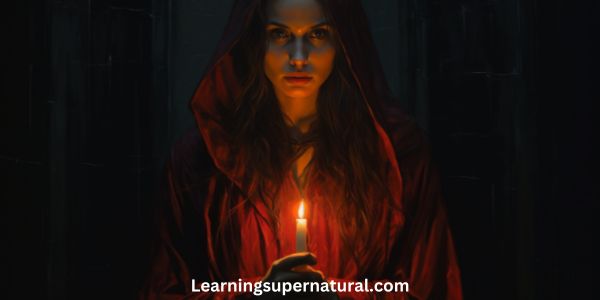Vampirism has always been a fascinating topic for many, but what does it have to do with psychology? In this article we will explore the link between vampirism and the mind.
We’ll look at how people become vampires in their own minds, as well as why they may choose such an alternative lifestyle.

From examining the dark allure of being a vampire to understanding its implications on mental health, this article will provide insight into the complex relationship between vampirism and psychology.
Vampires are often depicted as creatures who feed off human blood or energy, but what is truly behind their existence? Is there more than meets the eye when it comes to these mythical creatures?
By delving deeper into the psychological aspects of vampirism, we can gain valuable insights into why some people choose to adopt this identity. Furthermore, exploring the potential ramifications that come along with living a ‘vampire life’ provides us with invaluable information about mental health issues related to those who do practice vampirism.
Check out our Guide for The Fascinating World Of Vampire Mythology.
The Dark Allure Of Being A Vampire
Vampirism is a centuries-old mythic trope that has captivated the imagination of many. Its dark allure and mysterious qualities have drawn people in, creating an evergreen cultural attraction to vampires—even if they’re just fictive creatures.
There’s something almost innately mythical about vampirism; its stories are filled with frightening imagery, supernatural powers, and undeniable charisma. It effortlessly combines elements of horror, romance, and mystery into one powerful force capable of stirring up strong feelings within us.
Though it may seem like nothing more than a figment of our collective imaginations, there’s no denying the fact that the concept of vampirism continues to capture our attention and intrigue us even today. In order for us to fully appreciate this phenomenon however, we must move beyond simply examining its mythic resonance and instead delve into understanding the psychological implications of such a creature.
Examining The Psychological Implications Of Vampirism
The idea of vampirism is often associated with darkness, mystery and a sense of danger. Vampires have long been seen as the ultimate symbol of our culture’s fascination with fantasy escapism—with their alluring ability to exist outside the bounds of traditional morality.
From Bram Stoker’s gothic novel Dracula, to Anne Rice’s modern re-imagining of vampires in her Vampire Chronicles series, vampire stories continue to capture our collective imagination:
- They take us into realms that are both dangerous and seductive;
- Helping us explore taboos without actually having to cross any boundaries ourselves;
- Offering us an escape from our everyday lives into darkly romantic fantasies;
- Allowing us to momentarily experience a life out of reach through popular gothic culture.
Vampire fiction allows readers to indulge in what would otherwise be forbidden desires or impossible dreams, providing them with an opportunity for self-exploration while still maintaining a safe distance from potential real world consequences.
These myriad depictions offer up a tantalizing glimpse into how we view not only vampirism but also our own mortality and human nature more broadly – allowing us to better understand the relationship between vampirism and mental health in today’s society.
Understanding The Relationship Between Vampirism And Mental Health

Vampirism is an interesting phenomenon that has been explored for centuries in folklore and literature. While it started out as a source of entertainment, the underlying implications have come to light over time.
In this section, we will look at how vampirism can be related to one’s psychological state and mental health. The vampire myths and blood rituals associated with them often suggest a certain level of power or control by those who practice it. This can serve as a coping mechanism for some people who are struggling with feelings of low self-worth or insecurity.
On the other hand, practicing vampirism could also lead to increased anxiety or even depression due to feeling like an outsider among others in society. It is important to consider the potential risks involved in adopting such practices and investigate their impacts on one’s mental wellbeing before making any decisions about engaging in them.
By exploring these issues further, we can gain insight into the potential ramifications of embracing a vampire lifestyle on both physical and psychological levels. We must ask ourselves what kind of consequences may arise from living such an alternative life? And if so, how can they best be managed?
With more research being conducted into the topic, we seek to better understand the effects that following this path might have on our overall mental health.
Also, make sure to check out my post on Exploring Alternative Beliefs: Psychic Vampirism.
Investigating The Potential Ramifications Of The Vampire Lifestyle
Let’s take a look at the cognitive effects of vampirism and the emotional implications it may have on the individuals who choose to adopt this lifestyle.
Are there any psychological impacts we should be aware of?
Cognitive Effects Of Vampirism
The idea of vampirism has intrigued and terrified us for centuries, yet despite the cultural taboos that come with it, there is more to explore than simply its supernatural implications.
Beyond physical changes, a vampire’s lifestyle could have serious psychological effects; from their symbolized immortality to the struggle between morality and hedonistic desires, these creatures may face cognitive complications that challenge our traditional understanding of human psychology.
While some may argue that vampires are merely mythical figures created by literature and film, one cannot ignore the potential psychological ramifications of such an existence – particularly when considering how our own lives could be similarly affected by seemingly minor decisions or events.
A deeper exploration into this subject should not be overlooked as we seek to understand both ourselves and our place in society.
Emotional Implications Of Vampirism
The emotional implications of a vampire’s lifestyle are just as significant, if not more so, than the physical changes.
Vampires may struggle with an emotional toll due to their immortality and find themselves in conflict between preserving their identity while giving into hedonistic desires.
These feelings could have far-reaching effects on one’s sense of self and security, making it difficult to trust or form meaningful connections with others.
It is clear that the impact of such a decision isn’t limited solely to physical traits; the psychological consequences can be equally damaging and should be taken into consideration when exploring this topic further.
Exploring The Reasons Behind The Adoption Of A Vampire Identity

The adoption of a vampire identity is an interesting phenomenon that can have both personal and cultural implications. While embracing mortality may be the primary driver for some individuals, there are many more complex reasons why people choose to identify as vampires.
One possible explanation could be the powerful symbolism associated with vampirism in various cultures throughout history. Vampires often represent power and immortality, which can be attractive qualities to those seeking a sense of control or freedom from death.
Additionally, being part of such a unique subculture provides people with a community based on shared beliefs and values. This gives them access to like-minded individuals who understand their feelings and experiences without judgement or stigma.
Vampire identities also provide opportunities for self-expression through fashion, music, art, and other creative outlets. These activities are not only enjoyable but can provide psychological benefits such as increased confidence and social connections.
Moreover, this type of lifestyle allows people to express themselves freely without fear of reprisal or criticism from others in society who do not accept alternative lifestyles. By exploring these motivations behind the adoption of a vampire identity, it is clear that there are multiple factors at play when someone chooses to embrace this way of life.
Frequently Asked Questions
How Long Has Vampirism Been Around?
Vampirism has been a part of our cultural consciousness for centuries, with stories and myths about these mythical creatures swirling around the world.
It’s hard to pinpoint exactly when they first took root in our collective psyche, but it’s safe to say that vampirism has haunted us since ancient times.
From literature like Bram Stoker’s ‘Dracula’ to modern films, this shadowy figure continues to captivate us; an enigma shrouded in mystery and intrigue.
There is no denying its staying power and influence on culture over the years, making it clear that vampirism has left a lasting mark on humanity.
Are There Any Real-Life Vampires?
This is a question that has been asked for centuries, as the concept of vampirism has existed in folklore and mythology since ancient times.
Beliefs about mythical creatures such as vampires have varied widely throughout cultures around the world, often involving beliefs in blood rituals and other supernatural powers.
Although modern society no longer believes in these mythical creatures, some individuals still report experiencing traits associated with vampirism, including an aversion to sunlight and the consumption of human or animal blood.
Ultimately, whether or not real-life vampires exist remains a mystery.
What Risks Are Associated With The Vampire Lifestyle?
Imagery of a dark figure lurking in the shadows comes to mind when thinking about vampires and their lifestyle.
But what risks are associated with this alluring, yet dangerous way of life?
The psychological trauma that may be experienced by those who follow such an extreme path can not only have long-term mental effects but also cause cultural implications as well.
By embracing vampirism, one is opening themselves up to a plethora of potential dangers that could have devastating consequences on both an individual and societal level.
Are There Any Health Benefits To Being A Vampire?
When discussing the potential health benefits of being a vampire, it is important to consider both the cultural implications and psychological effects.
Historically, vampires have been portrayed as immortal beings with superhuman strength and speed; however, recent research suggests that there may be certain advantages associated with this lifestyle.
For example, some studies suggest that a vampire’s heightened senses can lead to increased alertness and enhanced cognitive functioning. Additionally, their diet may also provide numerous health benefits such as improved digestion and better blood circulation.
Despite these potential positives, it is important to remember that vampirism does come with risks – including social isolation and an overall sense of unease in one’s environment.
Are There Any Support Groups For People Who Identify As Vampires?
As the old adage goes, ‘there is strength in numbers.’ This mantra certainly applies to individuals who identify as vampires and seek support from others with similar alternative beliefs.
In today’s society, it may be difficult for people to discuss their mythological origins without judgement or bias.
Luckily, there are numerous online forums and local groups that provide a safe space for these conversations to take place.
These resources can help dispel any feelings of alienation while also providing an outlet to explore one’s identity more deeply.
Conclusion
Vampirism has long been a part of our culture, but it’s only recently that we’ve begun to explore the psychological implications of this lifestyle.
From its potential risks and health benefits to the support groups available for those who identify as vampires, there is much still to be learned about vampirism and its effects on people’s mental wellbeing.
As society continues to progress, so too does our understanding of vampirism and all its complexities.
How will further research into vampirism shape the way we view it? Only time will tell what lies ahead in terms of better embracing individuals who choose to follow this unique path.




